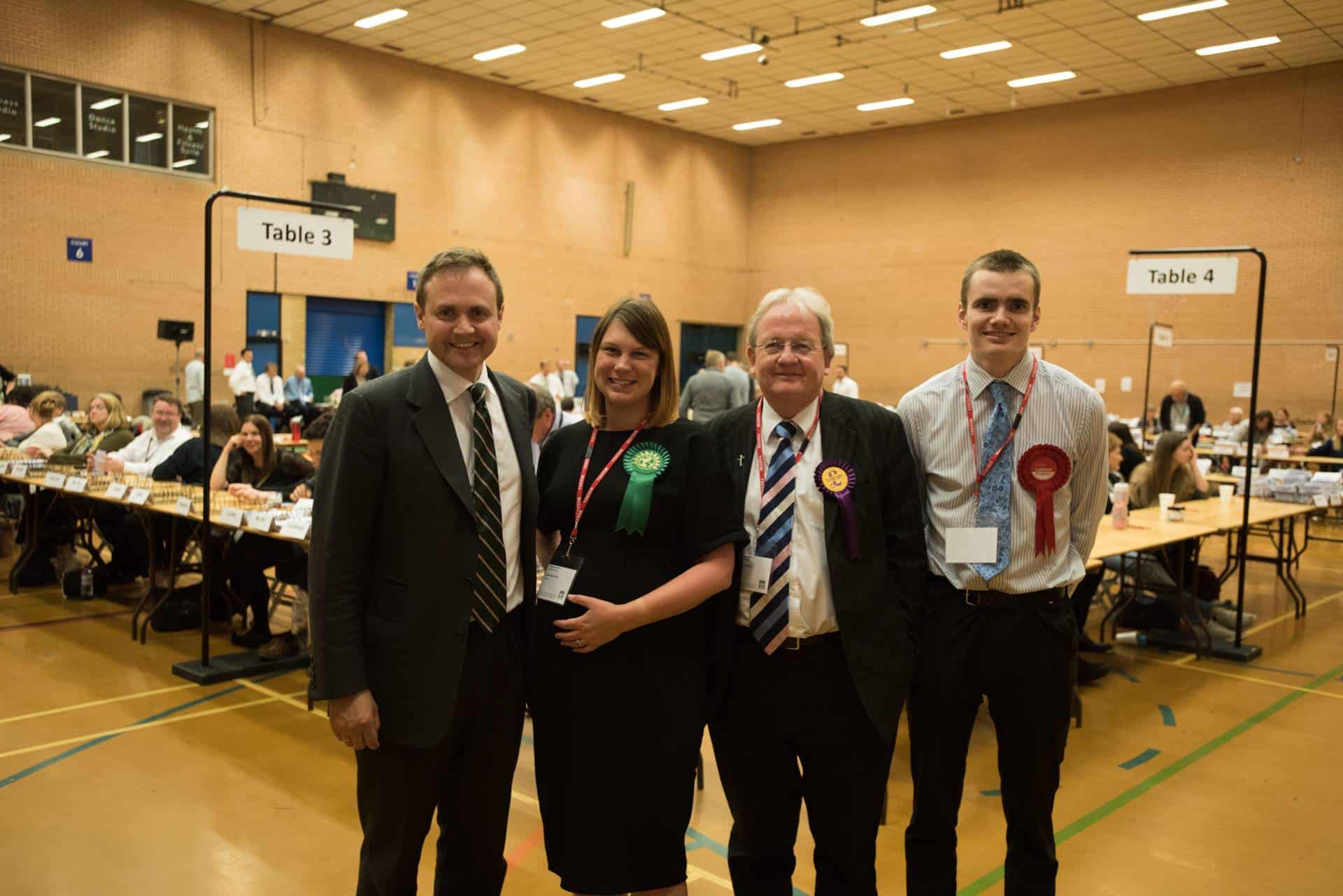Labour last week enjoyed its best election result in Tonbridge and Malling in 20 years with the party picking up an extra 5,000 votes, an increase of 71 per cent over the 2015 figure.
But it was nowhere near enough to threaten the sitting Conservative MP Tom Tugendhat who was returned to parliament with an increased share of the overall vote of 63 per cent.
The swelling of support for both the main parties can largely be attributed to the implosion of UKIP – who came in second place at the last General Election with 8,153 votes.
This time around they achieved less than a quarter of that, finishing last with just 3.3 per cent of the vote share. The Liberal Democrats and the Green Party came in third and fourth respectively. Turnout was 73.7 per cent.
The strong and stable Conservative leadership that Mr Tugendhat campaigned on has not been achieved as the party failed to retain a majority in the House of Commons.
Despite this, Mr Tugendhat told the Times that Theresa May still ‘has a mandate to govern’, pointing to the fact that she received a higher vote share than former PM John Major and a greater number of total votes than Tony Blair in 1997.
Although he conceded that ‘we didn’t have a good campaign; that is plain to see’.
He claimed that ‘it is far too early to tell’ if she is ‘a dead woman walking’ as ex-Chancellor George Osborne claimed on Sunday.
May’s authority during Brexit negotiations would not be significantly hindered by the result, he argued: Â “EU leaders will respect that she is the PM.”
However, despite his backing of the Prime Minister the proposed deal with the Democratic Unionist Party [DUP] ‘certainly throws up some questions’.
“Three questions I have already put out: One, the implication for the Northern Ireland peace process and neutrality of the UK government. Two, equality in the UK and three the implications on the Brexit deal and a soft/hard border.
“The DUP has made it clear they want a soft border so that does mean that ‘no deal’ is not an option anymore since a soft border would require some kind of deal,” he said.
Unlike neighbouring Tunbridge Wells, where Conservative Greg Clark attributed a loss of 6,400 votes from his majority to the town’s pro-Remain stance, Mr Tugendhat seemed mystified as to the motivations of many voters.
When asked why he thought so many more people than anticipated had chosen Labour he replied: “You would have to ask someone who voted for them. I certainly didn’t.”
Green argues it is time for a PR system
The Green Party’s April Clark, who came fourth behind Keith Miller of the Liberal Democrats, used the result to renew her call for a more proportional representation [PR] system.
In an open letter to all the other local candidates, she wrote that there is now a ‘crystal clear case for PR’, adding: “While 500,000 people voted for winning candidates, our first past the post electoral system has left over 800,000 in Kent with an MP they didn’t vote for and who probably doesn’t represent their views.
“The DUP got 10 MPs for their 292,000 votes, whereas the Green Party got just one MP for our 524,000 votes nationally. I do not believe this is fair or democratic.”








